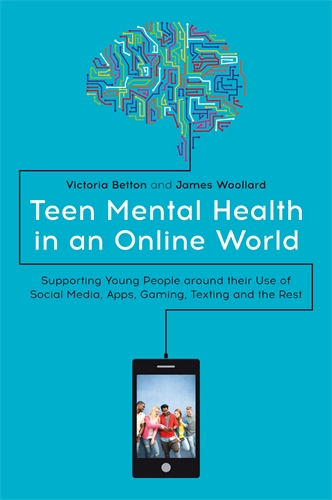 Victoria Betton and James Woollard discuss the need for mental health practitioners to rethink the relationship between adolescent mental health and the internet. Their article has been adapted from their new book, Teen Mental health in an Online World.
Victoria Betton and James Woollard discuss the need for mental health practitioners to rethink the relationship between adolescent mental health and the internet. Their article has been adapted from their new book, Teen Mental health in an Online World.
What if we approached the internet as a resource to be deployed rather than solely as a problem to be solved? What if we shifted our focus from the deficits of young people’s online lives to an asset-orientated approach which seeks to identify young people’s strengths and how we can enhance them? And what would this mean for practitioners working with young people who have mental health problems? Perhaps there are ways to make sense of young people’s connected lives that enable us to be better and more effective practitioners. Perhaps we can focus our efforts on creating a society in which young people can thrive online and develop better mental health and wellbeing as a result.
As digital technologies increasingly permeate our everyday lives, it is imperative that practitioners seek to understand what this means for vulnerable teens. This imperative is born out of a significant shift in teen behaviours whereby young people imperceptibly blend and weave together their online and offline existence. Digital media provide an emerging context for growing up that is unfamiliar to Generation X (who were born between the early sixties and early eighties). If as practitioners we fail to grasp this emergent digital sphere, we will be less equipped to offer effective support; we may say and do things that have a negative impact on the very young people we are there to help. Rather than seeking to avoid that which we do not fully understand, as practitioners we should embrace a courageous vulnerability by stepping into the reality of young people’s connected lives and seeking to understand it from their point of view.
If a practitioner’s task is to help young people become more self-aware and resilient, then what is it we need to consider in respect of the internet? Teens who have grown up with the internet are mostly focused on what it means to enter the social and adult world, developing and sustaining relationships with their peers. For them, technology is in the background and is a given. Indeed, when teens talk about their conversations it often doesn’t even occur to them to refer to the medium for that exchange – whether it be face to face, on Instagram or via Snapchat. In contrast, adults have more freedom, and experience in, engaging with a range of public environments and so are more likely to have technology at the forefront of their minds. There is perhaps a subtle but significant difference in emphasis between that which is a concern to teens’ connected lives and that which is a primary concern to adults.
The term ‘digital natives’ is often used to describe those who have grown up with the internet. However, this is not necessarily the most helpful way of thinking about this subject, insofar as it assumes that young people are essentially knowledgeable and older people are essentially ignorant about the internet. Yet the reality is more nuanced and complicated than that. There is a present and a future to be understood, negotiated and navigated – a shared endeavour for both teens and adults alike. Whilst social media platforms may come and go, it is important to focus on underlying principles and approaches that we believe are constant.
A mixed methods study of mental health practitioners found that many are enthusiastic about the role of the internet in supporting people for whom they care. However, they also identified a wide range of barriers, such as worries about privacy and risk, poor infrastructure and draconian organisational policies. Our intention is to promote a curious mindset on the part of practitioners, which will better equip them to understand this emerging landscape and enable them to offer effective and informed care and support to young people.
Victoria Betton and James Woollard’s book, Teen Mental Health in an Online World, is out on the 18th October. You can sign up to our Mental Health mailing list to be notified by email when the book is out.